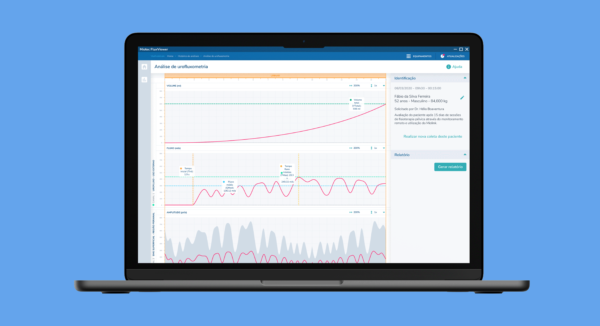The city is Lisbon. The year is 2019. The center stage of this event is the Altice Arena. There, the last in-person edition of the largest technology conference in Europe was held: WebSummit. Over four days, world leaders and thinkers gathered to forecast scenarios and debate on innovative solutions for the global market. Meanwhile, more than two thousand startups were competing for attention in search of angel investors capable of turning their ideas into cutting-edge digital products and services. Robots, automation, data privacy, 5G, corporate social responsibility, and sustainability were some of the themes highlighted in the 11th edition of the event, which brought more than 70,000 people from 160 countries to the Portuguese capital. A technological ecosystem capable of connecting theory and practice, in a highly entrepreneurial setting where CEOs of large global organizations and professional investors share the same universe.
The future is now
The conference proposes an intense immersion and in just a few minutes, it is possible to assimilate that the world shared there speaks much more about the present than about the future. Visitors, speakers, and angel investors of all nationalities and cultures circulate among the exhibition
stands of companies like
Google,
Microsoft, and
Facebook. The goal is universal: hunt trends and find future unicorns.
Alpha (companies in the pre-investment stage) and
Beta (companies successfully launched) startups distributed throughout the pavilions pitch the most innovative ideas and business models of today. A revolutionary, disruptive environment that pulses with technological innovation. The environment is competitive. To attract the eyes and attention of investors, information needs to be clear, relevant, and very enticing. Would you be able to deliver a killer presentation of your idea or business in just a few minutes? With that in mind, this article intends to address the main topics related to the angel investor concept. The journey described above can easily be adapted to national events, currently held in virtual format. However, before thinking about which conferences your target audience of investors attends, let us better understand the investment landscape in the tech sector.
Angel Investor Profile
The use of the term angel investor started in the 1920s, in the United States. Originating from the
Broadway shows, the business model was aimed at financing high-cost theater productions. Currently, this type of investment is popularly associated with the universe of startups, which use this model to launch themselves on the market. “Angels” are individuals who finance new companies by injecting their own capital into innovative businesses with a high potential for financial returns. In addition to money, these investors also share networking, experience, and business insights. Therefore, receiving an investment from a well-connected angel can be as strategic as the injection of capital itself. Qualified mentoring, guided by those who really understand this startup ecosystem can be a great competitive advantage in the market. This practice is still new in Brazil, but it is already showing expressive growth. According to data provided by
Anjos do Brasil, a non-profit organization that supports growing startups, an angel investor can be an executive or a successful professional (from any sector) with an interest in diversifying his or her investments – which must represent a share of up to 10% of the investor’s total net worth. The angel investment can follow a collective credit line, where the financial investment can vary between R$ 50,000 and R$ 500,000, in exchange for a minority stake in the company. This business is not just for millionaires though. It is possible to invest amounts starting at R$ 20,000.
Types of investment
The search for angel investors is one of the biggest challenges faced by startups. Therefore, investment rounds become crucial for this key turning point in business. Therefore, establishing a flow of investments is essential to keep the project in constant development. Each investment round can be composed of a single investment fund or a series of funds, which together result in the contribution that will be injected into the startup. After the initial
angel investment, startups move on to the second round, where a
Seed Investment seeks to raise funds to support research, development, and market validation work. At this stage, the contributions are riskier and exceed the amount of R$ 1 million. The goal is to build a high-performance team focused on business evolution. The next stage is comprised of new investments, also known as
Series. These rounds follow an alphabetical order starting in Series A. Over time and as startups grow, new investment rounds are needed, resulting in Series B, C, and so on. In these rounds, the objective is to attract increasingly larger investments, capable of financing new objectives and even supporting the accelerated development of the business.
How to prepare for an investment round?
Now that we understand a little more about this universe of investments, it is important to remember that to catch the attention and interest of an angel investor, it is necessary to have a structured business idea. After all, you need to provide reassurance to your future business partner. At SoftDesign, through the
Conception service, we prepare your startup for the validation phase and for the meeting with angel investors. Our work starts with
ideation: we listen to your idea and collaboratively apply Design Thinking techniques in order to identify doubts and raise hypotheses about the proposed project. The second step consists of detailed
research on the universe that permeates your solution. Here we will gather important data about the environment where your business is inserted. Who are your competitors? What is the user profile? How does this specific market work? Who are the main players? Through these answers, we go to the value proposition stage, where we co-create and define your ideal business model. Together we will build a revenue strategy, define the target audience and the differentiators that make your product or service a must-have for potential consumers and, of course, for investors as well.
Talk to us!
Would you like to understand it better?
Contact us and we will get back to you as soon as possible. Oh, and in the next article in this series, we will talk about who the famous Brazilian unicorns are and what they did to get there. Stay tuned!



